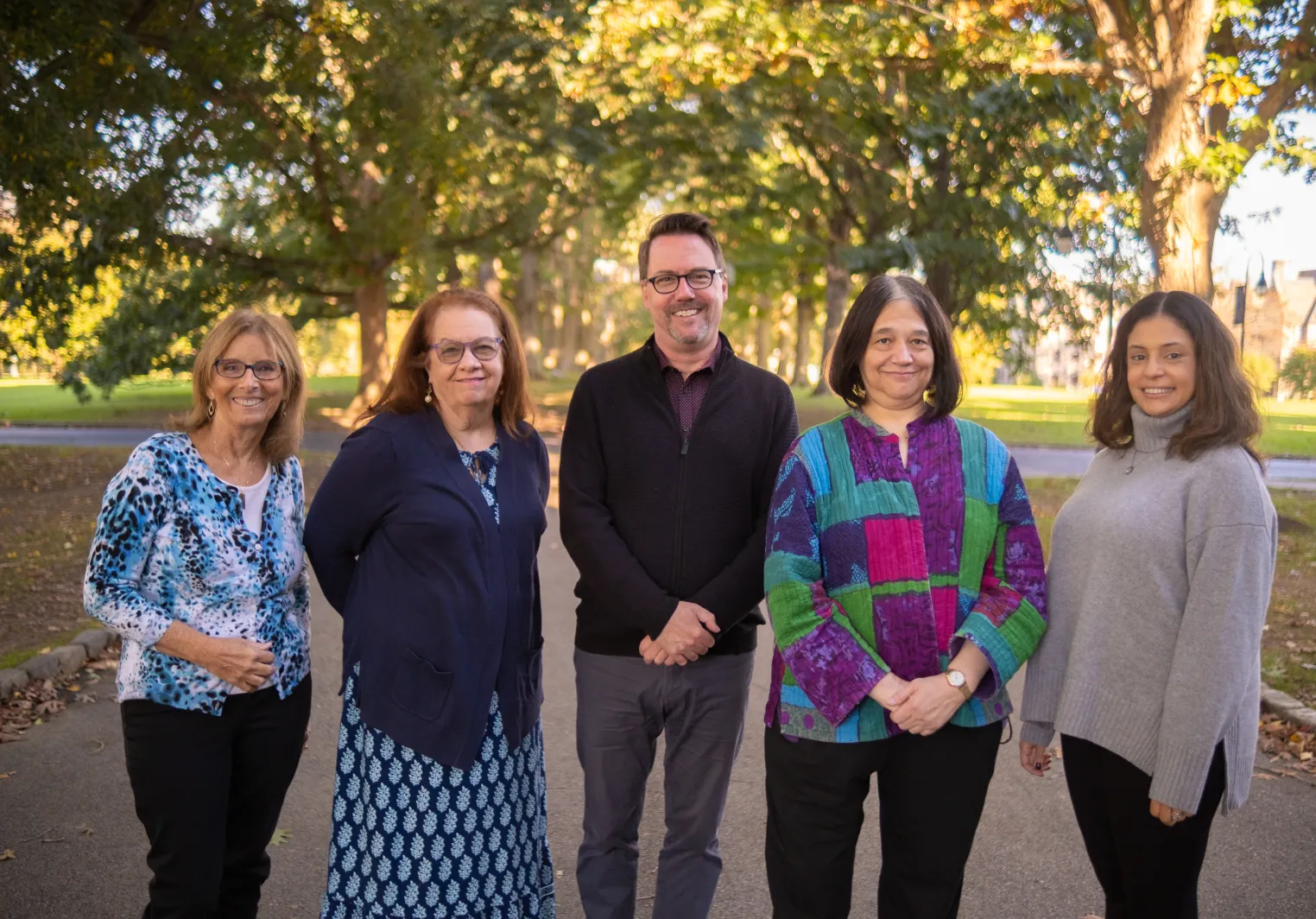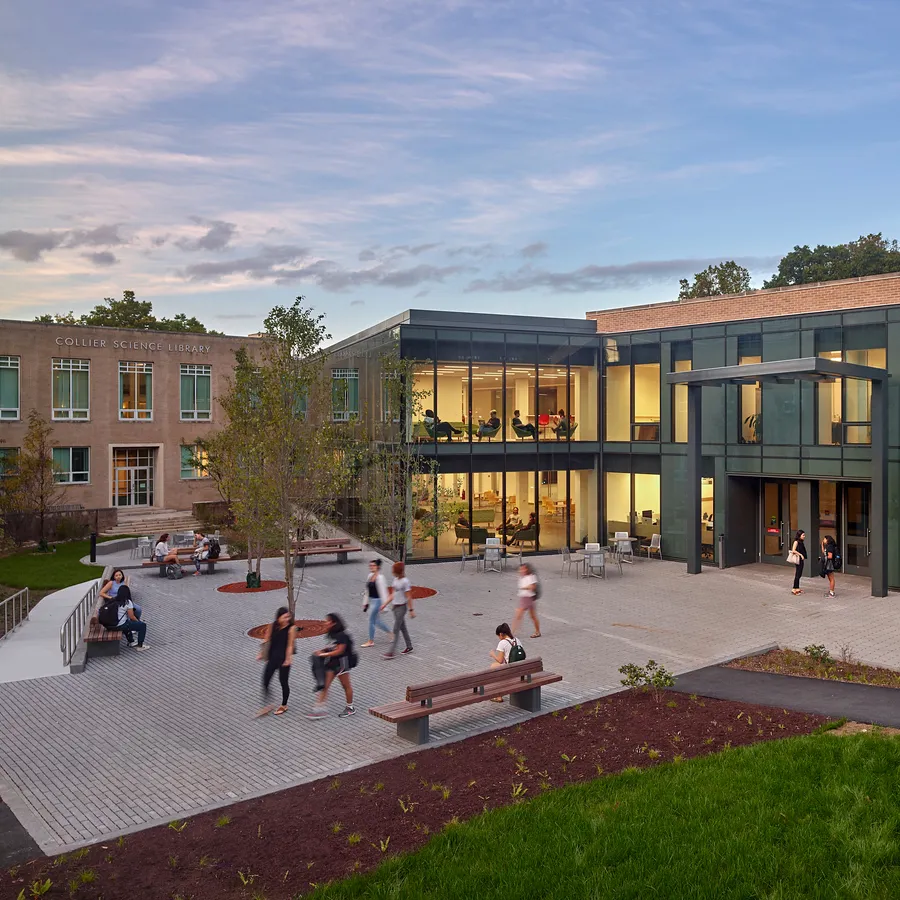
About the Program
Established in 1972, the Bryn Mawr Postbac Program is one of the oldest, most respected, and most successful in the nation.
Designed With You In Mind
Our program is designed for highly motivated individuals who want to pursue a career in medicine but have not taken the required premedical courses as undergraduates. Over a 12-month period of intensive, full-time study in the classroom, our students are thoroughly prepared for the challenges of medical school. When it comes time for them to apply to medical school, over 95 percent are accepted.
A Brighter Path: Hallmarks of the Program
Housed within the Health Professions Advising Office, a division of the Office of the Provost, our program is distinctive in several ways.
- Its size is ideal (65-70 students)—small enough to give you individual attention and support, yet large enough to offer a tight-knit community of diverse individuals with a shared goal of becoming a physician.
- As a result, postbacs enjoy full access to the Bryn Mawr faculty, whose teaching emphasizes mentorship, collaboration, in-depth academic support, and hands-on experience in the lab.
- Moreover, our dedicated program staff get to know you as an individual, providing the counsel and resources that meet all your unique interests and needs, from succeeding academically to choosing the medical school that is right for you.
Our Mission
To empower driven individuals to transform their lives and become catalysts for positive change in healthcare.
Our Guiding Principles
- Supporting a love of learning among our students and helping them develop tools for continued success in the classroom
- Encouraging a collaborative, non-competitive educational environment
- Fostering a community of inclusion and belonging among members of each postbac class while inviting faculty and staff across the College to join us
- Helping students clarify and communicate their motivation for medicine through reflection, programming, and patient-centered service
- Aligning our work with the overall Mission of Bryn Mawr College.
Director's Message
Bryn Mawr’s Postbac program is widely recognized as one of the most selective and well-respected in the nation. Since 1972, we have prepared students for success in medical school and as future physicians in an intellectually challenging and rewarding environment. As the program’s director, I consider it a privilege to work closely with such intelligent, dedicated, and accomplished women and men who are fulfilling their dreams of a career in medicine.
Explore This Section...
FAQs About the Program
Our program is for "career changers" who wish to take the coursework required to apply to a health professional school, for the first time. A bachelor’s degree must be conferred by the time the postbac program starts. Applicants are generally new to science and have a very strong academic record in college.
We are not a program for those looking to enhance their grades in previous premed courses.
The Bryn Mawr Postbac Program is a full-time, 12-month program that begins in late May.
Our staff will guide you every step of the way, from enrollment to the postbac program through your application to medical school. This includes: personal advising; step-by-step workshops on the medical school admissions process; help with the process of self-assessment that will lead to selecting schools to which you will apply; preparation for the Medical College Admission Test (MCAT); and a comprehensive, personal premedical committee letter written for each student.
Your preparation for medical school admission begins during your first week at Bryn Mawr. Our step-by-step workshops explain the medical school admissions process, including the various requirements and expectations of different medical schools, and help you with the process of self-assessment that will lead to selecting schools to which you will apply. We also offer practical workshops on preparing for the Medical College Admission Test (MCAT).
The program's director will personally advise you, as often as needed, in all phases and aspects of the medical school admissions process—from how to write your personal statement to selecting schools and interview preparation. The director also writes a comprehensive and personal committee letter for each student. Our staff will assemble your completed letters of recommendation for electronic transmittal to your selected medical school(s).
The science lectures are for postbac students. Some laboratory sections may include undergraduate students.
We hire a fellow, often a former postbac in the program, to lead our in-house MCAT preparation. The fellow organizes a series of group sessions and is available for 1:1 guidance.
Each year, we review the MCAT Prep component of the program to continually improve its effectiveness.
Although most postbac students pursue medical school, the core science courses in our postbac curriculum also prepare students for dental school, and cover a majority of the admissions requirements for veterinary school and other health professional schools.
Yes. Bryn Mawr College has elected to participate in the Yellow Ribbon Program. For more information, please see Postbac | Types of Aid.
Meet the Team
Meet the dedicated team behind Bryn Mawr's Postbaccalaureate Premedical Program – here to guide, support, and cheer you on every step of the way as you take this bold step toward a career in medicine!

Director's Message
Bryn Mawr’s postbac program is widely recognized as one of the most selective and well respected in the nation. Since 1972, we have prepared students for success in medical school and as future physicians in an intellectually challenging and rewarding environment. As the program’s director, I consider it a privilege to work closely with such intelligent, dedicated, and accomplished women and men who are fulfilling their dreams of a career in medicine. They are wonderful students to advise, and I love watching them go on to become successful medical students and compassionate physicians—many as leaders in their chosen field.
Our graduates’ history of success in gaining admission to medical school is remarkable: our medical school acceptance rate consistently exceeds 98 percent. We are very proud of how impressed medical school admissions committees across the country have been with our postbac students’ medical school applications through the years.
Bryn Mawr has early acceptance arrangements with more medical schools than any other postbac program, and we have the longest-standing relationships with many of these consortial/linkage schools.
Most important, however, is what our postbac alumni tell us. We regularly hear that the Bryn Mawr experience thoroughly and effectively prepared our alumni for the study of medicine, and that their time on our campus was one of the richest, most exciting years of their lives. This indicates not only the exceptional quality of our academic program and faculty but also the uniquely supportive, collegial environment we create for our students.
All of us at the postbac program are committed to helping our students succeed. We are here to assist in making the transition to an intensive course of study in the sciences, in working together in a tightly-knit community of diverse individuals with a shared goal, in learning from stimulating volunteer positions in the medical community, in taking advantage of strong advising and other supportive resources to prepare for all aspects of the medical school application process, and, ultimately, in realizing their true calling as physicians.
I invite you to discover all that Bryn Mawr has to offer by exploring our website. I am excited to share my enthusiasm with you and look forward to answering any questions you may have about our program.
Sincerely,
Glenn Cummings
Associate Dean and Director, Health Professions Advising and Postbaccalaureate Premedical Program
Glenn’s guiding interest is in providing individualized support and advice to the postbac student population, having spent the bulk of his career advising students entering the health professions. After finishing his doctorate in American Literature at the University of Virginia, Glenn shifted his professional focus to academic advising, and later became UVA’s Director of Pre-professional Advising. In 2004 he moved to Princeton University, where for the next eight years he advised scores of students through their pre-medical education, chaired the Committee on the Health Professions, and expanded the pre-health advising program significantly. He then returned to his small liberal arts college roots—having attended Colby College himself—and accepted a position at Franklin & Marshall College as the new Director of Health Professions Advising, with the task of rebuilding a robust advising program at a school with a rich history of graduates entering medicine. He arrived at Bryn Mawr in August 2014.
Glenn is an active member of both the Northeast Association of Advisors for the Health Professions (NEAAHP) and the National Association of Advisors for the Health Professions (NAAHP), serving on the NAAHP’s Postbac Committee. With a particular interest in writing, he has also chaired the NAAHP’s Letters of Evaluation Task Force, served as Assistant Director on the Communications Committee, contributed to the Association of American Medical Colleges’ Letters of Evaluation Advisory Group, and received the NAAHP Award for Outstanding Service.
Questions About Applying?
Explore Postbac

Contact Us
Postbaccalaureate Premedical Program
Park Science Building
Room 349
Bryn Mawr Program-Specific Questions
Email postbac@brynmawr.edu
Phone 610-526-7350
Application Service Process Questions
Call PostbacCAS Customer Service at (857) 304-2047
Email PostbacCASinfo@liaisoncas.com




